The Phantom of the Opera music sheets capture the enduring appeal of Andrew Lloyd Webber’s iconic score, offering piano solos, vocal arrangements, and instrumental versions for musicians worldwide.
1.1 Overview of the Musical and Its Significance
The Phantom of the Opera, composed by Andrew Lloyd Webber, is a globally renowned musical, captivating audiences with its dramatic storyline and iconic score. Its sheet music, including piano solos and vocal arrangements, has become essential for musicians and fans alike. The musical’s enduring success lies in its emotional depth, memorable melodies, and universal appeal. Sheet music for songs like “The Music of the Night” and “All I Ask of You” is widely sought after, reflecting the musical’s timeless influence.
1.2 Importance of Sheet Music in Performing the Musical
SHEET music is vital for performing The Phantom of the Opera, providing precise notation for pianists, vocalists, and instrumentalists. It ensures authenticity and continuity, preserving Andrew Lloyd Webber’s original compositions. From piano solos to orchestral arrangements, sheet music guides musicians in capturing the musical’s dramatic essence. Accessing high-quality PDFs, like those for “The Music of the Night”, is essential for both professional and amateur performances, maintaining the integrity of this beloved musical masterpiece.
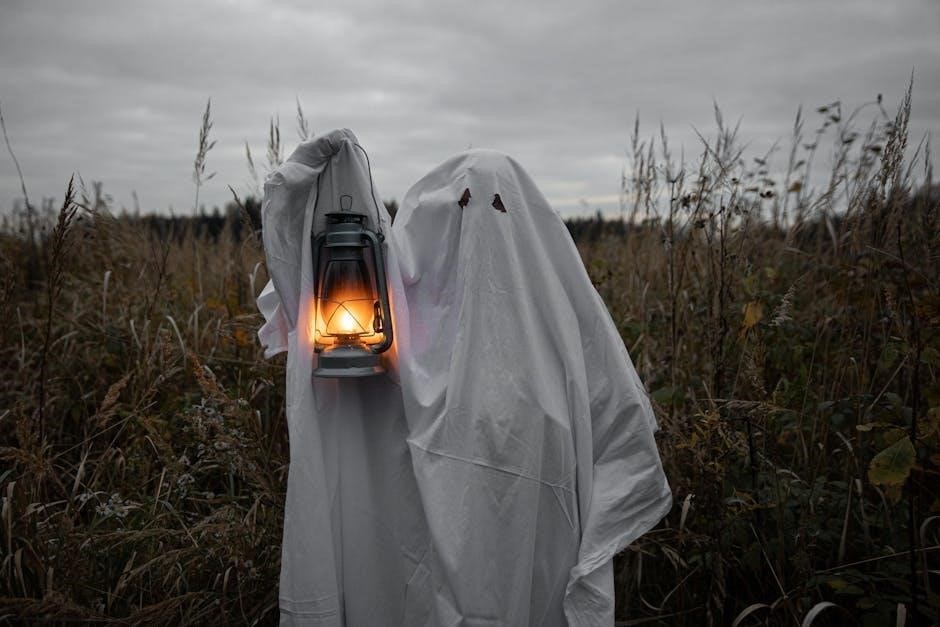
Composition and Arrangements
Andrew Lloyd Webber’s original score for The Phantom of the Opera features iconic piano solos, orchestral arrangements, and vocal duets, offering rich musical depth for performers and enthusiasts alike.
2.1 Andrew Lloyd Webber’s Original Score
Andrew Lloyd Webber’s original score for The Phantom of the Opera is a masterpiece of musical storytelling, blending grand orchestration with haunting melodies. The iconic themes, such as “The Music of the Night” and “All I Ask of You,” showcase Webber’s ability to evoke emotion and drama. The score’s intricate harmonies and choral pieces have become synonymous with the musical’s identity, making it a cornerstone of modern theater music. Sheet music for piano and orchestral arrangements remains widely popular, allowing performers to bring this epic tale to life. Webber’s composition continues to inspire musicians and audiences globally.
2.2 Piano Solos and Vocal Arrangements
Piano solos and vocal arrangements of The Phantom of the Opera are widely popular, offering intimate interpretations of Andrew Lloyd Webber’s iconic melodies. Arranged by artists like Shannon M. Grama, these solos include pieces like “Think of Me” and “The Music of the Night,” providing pianists with expressive repertoire. Vocal arrangements, often transposable, cater to both soloists and ensembles, preserving the emotional depth of the original score. These adaptations make the music accessible to performers of varying skill levels, ensuring its timeless appeal endures. PDF downloads of these arrangements are readily available online.
2.3 Instrumental Versions for Piano, Guitar, and Flute
Instrumental versions of The Phantom of the Opera for piano, guitar, and flute are widely available, offering versatile interpretations of the iconic score. Piano arrangements remain the most popular, with solos capturing the emotional essence of the music. Guitar and flute versions provide fresh perspectives, making the melodies accessible to a broader range of musicians. These instrumental sheets, often in PDF format, are easily downloadable from platforms like MuseScore, ensuring high-quality playback and practice for enthusiasts of all skill levels.

Sources for Downloading Phantom of the Opera Music Sheets
Sources for Phantom of the Opera sheets include official platforms, licensed distributors, and community-driven websites. MuseScore and similar platforms offer high-quality digital downloads, catering to various instrumental needs.
3.1 Official Platforms and Licensed Distributors
3.1 Official Platforms and Licensed Distribusters
Official platforms like MuseScore and licensed distributors provide authentic Phantom of the Opera sheet music. These sources ensure legality and quality, offering downloadable PDFs in various keys. They cater to pianists, vocalists, and instrumentalists, with transposable scores for flexibility. Many platforms partner with The Really Useful Group Ltd., guaranteeing accurate arrangements. Purchasing from these sites supports the creators and ensures a premium musical experience for performers and enthusiasts alike.
3.2 Free Resources and Community-Driven Websites
Free resources like MuseScore and community-driven websites offer downloadable Phantom of the Opera sheet music. These platforms provide PDF versions of popular songs, including piano solos and vocal arrangements. Websites such as Scribd and forums often feature user-contributed scores, making them accessible to musicians worldwide. While free, some arrangements may lack official licensing, so users should be cautious about copyright compliance. These resources are ideal for enthusiasts seeking affordable or flexible access to the iconic musical’s music.
3.3 MuseScore and Other Digital Sheet Music Platforms
MuseScore and other digital platforms provide a wealth of Phantom of the Opera sheet music in PDF format. These sites often feature user-generated and professionally arranged scores, offering high-quality downloads. Platforms like Musicnotes and Sheet Music Plus also host licensed versions, ensuring authenticity. Many arrangements are transposable, catering to various instruments and skill levels. Additionally, these platforms offer easy piano versions, making the iconic musical accessible to beginners while maintaining the original’s grandeur.

Popular Songs and Their Sheet Music
The Phantom of the Opera features iconic songs like “The Music of the Night” and “All I Ask of You”, with sheet music widely available in PDF format for piano, vocal, and orchestral arrangements.
4.1 “The Music of the Night” – Piano and Vocal Scores
“The Music of the Night” is a standout piece from The Phantom of the Opera, with its haunting melody and powerful vocals. Available in PDF format, the piano and vocal scores are widely sought after by musicians. The arrangement is typically in the key of D Minor, offering a dramatic and emotive performance. Many versions include transposable scores, catering to various vocal ranges and instrumental accompaniments. This iconic song remains a favorite among performers and enthusiasts, with high-quality sheet music accessible on platforms like MuseScore and official distributors. Its enduring appeal ensures it remains central to the musical’s legacy.
4.2 “All I Ask of You” – Duet Arrangements
“All I Ask of You” is a heartfelt duet from The Phantom of the Opera, showcasing emotional depth and harmonious vocals. Available in PDF format, the duet arrangements are popular for their rich piano accompaniments and vocal interplay. The song, originally in E Major, is often transposed to suit different vocal ranges. Its beauty lies in the balance between male and female voices, making it a favorite for duet performances. High-quality scores are accessible on platforms like MuseScore, ensuring authenticity and clarity for musicians.
4.3 “Masquerade” – Orchestral and Piano Versions
“Masquerade” is a grand orchestral piece from The Phantom of the Opera, featuring intricate instrumentation and dramatic flair. Piano versions offer a simplified yet powerful rendition, capturing the essence of the original. Available in PDF format, these scores are popular among pianists and orchestras alike. The music’s complexity and beauty make it a standout piece, with arrangements ranging from solo piano to full orchestral scores, ensuring versatility for performers of all levels and preferences.

Sheet Music Formats and Quality
Phantom of the Opera sheet music is available in high-quality PDF downloads, ensuring crisp prints and professional arrangements. Transposable scores and easy piano versions cater to diverse skill levels and preferences.
5.1 PDF Downloads and Print Quality
Premium PDF downloads of Phantom of the Opera sheet music ensure high-resolution prints, maintaining the original score’s clarity. These files are optimized for professional and home printers, delivering crisp notation and legible text. Many platforms offer instant downloads, allowing musicians to access the music quickly. The PDF format preserves the arrangement’s integrity, making it ideal for both performance and practice. This ensures that every note and dynamic marking is accurately represented, maintaining the composer’s intent. Additionally, watermarks are often included to protect copyright, ensuring the sheet music is used legally and respectfully. With a focus on quality and convenience, PDF downloads have become the standard for sheet music distribution, satisfying the needs of performers and enthusiasts worldwide.
5.2 Transposable Scores for Different Instruments
Transposable scores of Phantom of the Opera music sheets allow adaptation for various instruments, ensuring versatility for musicians. Platforms like MuseScore offer adjustable keys, enabling players to perform pieces on their preferred instruments. This feature is particularly useful for soloists, ensembles, and orchestras, as it maintains the composition’s integrity while catering to different instrumental needs. Transposable scores enhance accessibility, making the iconic melodies reachable for a broader range of performers and interpretations, from piano to flute or guitar arrangements.
5.3 Easy Piano Versions for Beginners
Easy piano versions of Phantom of the Opera music sheets simplify complex pieces into accessible arrangements for beginners. These adaptations maintain the essence of the original compositions while using simpler melodies and harmonies. Transposable and downloadable as PDFs, they allow learners to practice at their own pace. Many platforms offer free or affordable easy piano sheets, making iconic songs like “The Music of the Night” and “All I Ask of You” approachable for those developing their skills, fostering musical growth and enjoyment.
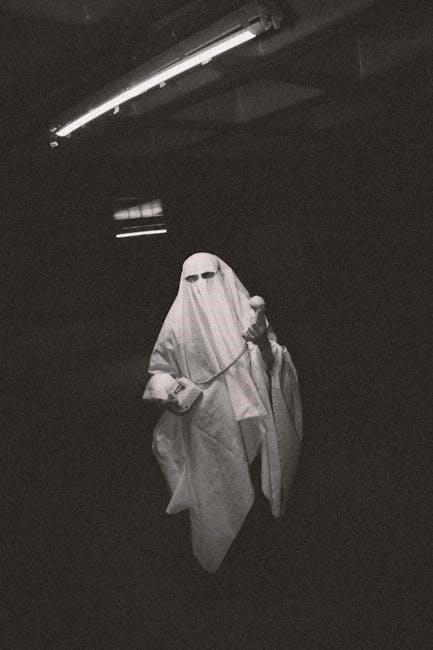
Legal and Copyright Considerations
Respect copyright laws when using Phantom of the Opera sheet music. Ensure licensed use, proper attribution, and avoid unauthorized distribution to comply with intellectual property rights.
6.1 Copyright Laws and Licensed Use
The Phantom of the Opera sheet music is protected by copyright, owned by Andrew Lloyd Webber and licensed through The Really Useful Group Ltd. Users must obtain proper licensing for performance, reproduction, or distribution. Unauthorized use violates copyright laws, potentially leading to legal consequences. Always source sheet music from official platforms or licensed distributors to ensure compliance and support the creators. Proper attribution is required for non-commercial use, with clear guidelines to avoid infringement and respect intellectual property rights.
6.2 Attribution and Non-Commercial Use Guidelines
Proper attribution is essential when using Phantom of the Opera sheet music. Non-commercial use requires crediting the original creators, including Andrew Lloyd Webber, Charles Hart, and Richard Stilgoe. Users must adhere to copyright terms, ensuring no modifications or redistributions without permission. Commercial use demands proper licensing from The Really Useful Group Ltd. Respect intellectual property by following these guidelines to avoid legal issues and support the creators’ rights. Always verify licensing terms before sharing or performing the music publicly.
6.3 Reporting and Respecting Copyright Infringement
Respecting copyright is crucial when using Phantom of the Opera sheet music. Report any unauthorized use to copyright holders, such as The Really Useful Group Ltd. Infringement includes unlicensed distribution or modifications. Use DMCA notices for violations online. Respecting rights ensures fair compensation for creators and maintains the integrity of the musical. always prioritize legal avenues to avoid penalties and support the preservation of this iconic work. Report violations promptly to uphold intellectual property standards.
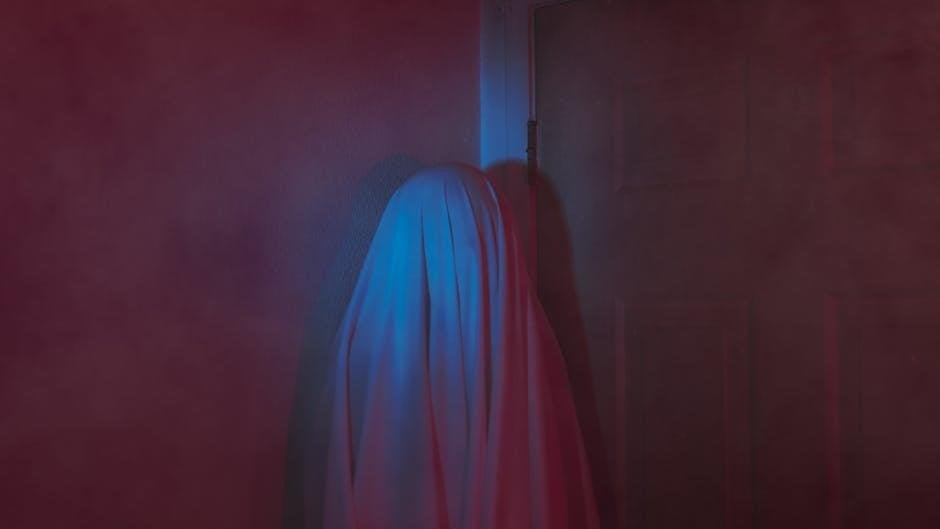
Performance and Practice Tips
Mastering Phantom of the Opera music sheets requires dedication and practice. Explore piano solos, vocal arrangements, and instrumental versions to refine your technique. Emphasize dynamics, tempo, and emotional depth for a captivating performance.
7.1 Mastering Vocal Parts and Choruses
Mastering the vocal parts of Phantom of the Opera requires precision and emotional depth. Focus on songs like “The Music of the Night” and “All I Ask of You,” perfecting dynamics and phrasing. Practice breath control for sustained notes and explore harmonies in choruses like “Masquerade.” Study the original scores and recordings to capture the essence of each character. Work with a piano accompanist to refine timing and balance. Regular practice and vocal warm-ups will help achieve a captivating performance.
7.2 Piano Accompaniment Techniques
Mastering piano accompaniment for Phantom of the Opera requires a deep understanding of the score’s complexity. Focus on maintaining a steady tempo and dynamic balance, particularly in pieces like “The Music of the Night” and “All I Ask of You.” Emphasize harmonic richness and phrasing to support vocalists. Practice arpeggios and chord progressions to enhance fluidity. Use sheet music to guide articulation and expression, ensuring the piano complements the vocals and orchestral elements seamlessly. This will elevate the emotional impact of the performance.
7;3 Orchestral Arrangements for Stage Performances
Orchestral arrangements for Phantom of the Opera stage performances are intricate, blending grandeur with emotional depth. Conductors must balance strings, woodwinds, brass, and percussion to create the iconic sound. Sheet music often includes detailed cues for timing and dynamics, ensuring synchronization with vocalists. Rehearse sections like “Masquerade” and “The Phantom of the Opera” to perfect the dramatic build-ups. Use the original score as a guide to maintain authenticity while allowing for creative interpretations that captivate audiences and enhance the storytelling experience.

Community and Resources
The Phantom of the Opera community thrives online, with forums, YouTube tutorials, and platforms like MuseScore offering resources and spaces for collaboration and learning.
8.1 Online Communities for Musicians and Fans
Online communities dedicated to The Phantom of the Opera provide vibrant spaces for musicians and fans to share, discuss, and collaborate. Platforms like MuseScore and YouTube host tutorials, covers, and sheet music, fostering creativity and learning. Forums and social media groups allow enthusiasts to connect, exchange tips, and showcase their performances. These communities celebrate the musical’s legacy while inspiring new interpretations and arrangements, making them invaluable resources for both professionals and enthusiasts alike.
8.2 Tutorials and Covers on YouTube
YouTube offers a wealth of tutorials and covers dedicated to The Phantom of the Opera, providing valuable resources for musicians. Piano covers of iconic songs like “The Music of the Night” and “All I Ask of You” are widely available, along with vocal tutorials and instrumental arrangements. These videos often include sheet music PDF downloads or transcriptions, helping pianists and vocalists master the pieces. Channels featuring audition materials and fan creations further enrich the community, making YouTube a hub for both learning and inspiration.
8.3 Forums for Sharing and Discussing Sheet Music
Online forums dedicated to The Phantom of the Opera sheet music foster vibrant communities where musicians share, discuss, and collaborate. These platforms often feature user-uploaded PDFs, transcriptions, and arrangements, along with feedback and tips for performers. Discussions range from interpreting complex piano solos to perfecting vocal duets like “All I Ask of You”. Forums also serve as hubs for discovering rare or alternative versions of the score, making them invaluable for enthusiasts and professionals alike.
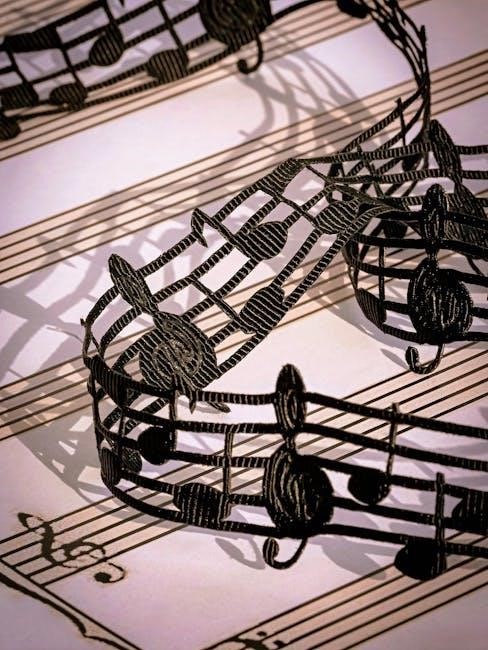
Historical Context and Evolution
The Phantom of the Opera originated from Gaston Leroux’s novel, evolving into Andrew Lloyd Webber’s iconic 1986 musical. Its sheet music has since been widely adapted and transcribed for various instruments, preserving its timeless appeal through modern arrangements.
9.1 The Original Novel and Its Musical Adaptations
Gaston Leroux’s 1910 novel The Phantom of the Opera inspired Andrew Lloyd Webber’s iconic 1986 musical adaptation. The story of the deformed composer and his obsession with Christine Daaé was transformed into a theatrical masterpiece, blending romance, drama, and music. Webber’s score, featuring iconic songs like The Music of the Night and All I Ask of You, became a cornerstone of modern musical theater, with sheet music widely sought after by performers and enthusiasts.
9.2 Early Stage Productions and Sheet Music
The first stage adaptation of The Phantom of the Opera was composed by Ken Hill in 1976, preceding Andrew Lloyd Webber’s iconic 1986 version. Early productions relied on meticulous sheet music arrangements, ensuring the iconic score was faithfully performed. The original piano solos and vocal scores became foundational for later adaptations, with Webber’s version solidifying the musical’s legacy. These early arrangements laid the groundwork for the enduring popularity of Phantom sheet music among performers and enthusiasts worldwide.
9.3 Modern Interpretations and Arrangements
Modern interpretations of The Phantom of the Opera sheet music have evolved, blending traditional compositions with contemporary arrangements. Digital platforms offer high-quality PDF downloads, ensuring accessibility for pianists, vocalists, and instrumentalists. Transposable scores cater to diverse skill levels, while orchestral versions remain faithful to the original. Community-driven platforms like MuseScore host creative covers, fostering innovation while preserving the musical’s timeless essence. These adaptations ensure the iconic score continues to inspire new generations of musicians and enthusiasts.
The enduring legacy of The Phantom of the Opera is preserved through its sheet music, offering musicians and fans timeless compositions to explore and perform. Webber’s masterpiece continues to inspire, ensuring its place in musical history.
10.1 The Enduring Legacy of the Phantom of the Opera
The Phantom of the Opera remains a cultural icon, with its music sheets preserving Andrew Lloyd Webber’s masterpiece. Its timeless appeal ensures that pianists, vocalists, and orchestras continue to perform these iconic pieces, maintaining its legacy across generations. The availability of PDF downloads and transposable scores has made it accessible to musicians worldwide, fostering both professional and amateur performances. Its influence spans decades, solidifying its place in musical history.
10.2 Encouragement to Explore and Perform the Music
Musicians of all levels are encouraged to explore the timeless beauty of Phantom of the Opera through its sheet music. Whether you’re a seasoned performer or a beginner, the availability of PDF downloads and transposable scores makes it accessible to everyone. Embrace the opportunity to interpret iconic pieces like “The Music of the Night” or “All I Ask of You.” Performing this music fosters creativity, skill development, and a deeper connection to the musical’s emotional depth. Let the legacy inspire your artistry and passion for music.
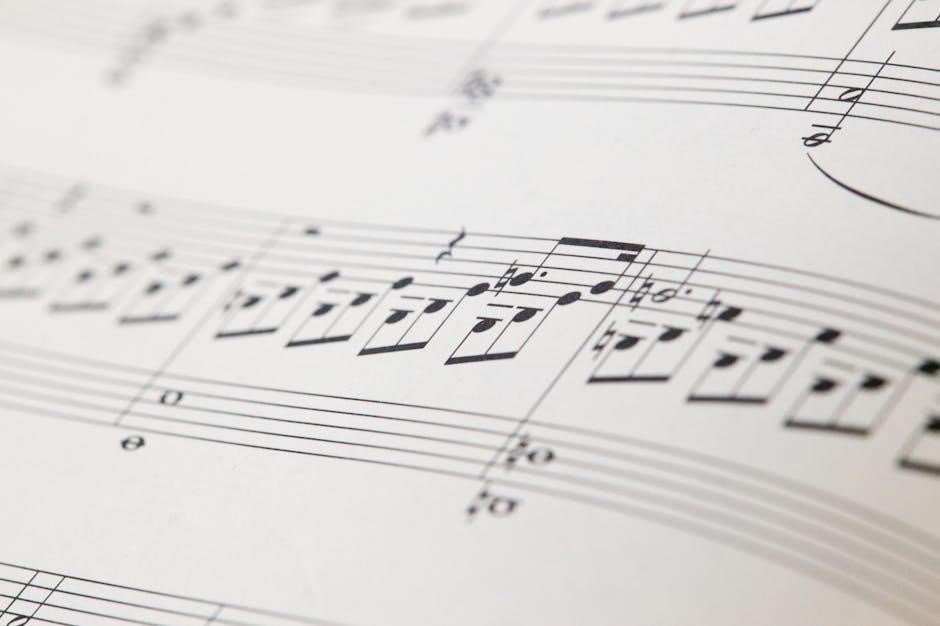
Additional Resources
Explore platforms like MuseScore and FreedomSheets for extensive libraries of Phantom of the Opera sheet music. Discover books, tutorials, and workshops to enhance your musical journey and performance skills.
11.1 Recommended Websites for Sheet Music Enthusiasts
For enthusiasts seeking high-quality Phantom of the Opera sheet music, platforms like MuseScore, Musicnotes, and SheetMusicPlus offer extensive libraries. These sites provide licensed scores, ensuring authenticity and quality. Additionally, FreedomSheets and PianoNanny are excellent for free and easy-to-download PDF versions. Many platforms feature transposable scores, catering to various skill levels, while others offer orchestral arrangements and vocal parts. These resources are indispensable for musicians aiming to master Webber’s timeless compositions.
11.2 Books and Guides on Playing the Score
Several books and guides are available to help musicians master The Phantom of the Opera score. These resources include comprehensive guides with insights into Webber’s composition techniques. Tutorial books offer step-by-step instructions for piano, vocal, and instrumental parts. Many guides are available in PDF and digital formats, making them accessible to musicians worldwide. These materials cater to both beginners and advanced players, ensuring a deeper understanding and mastery of the iconic musical pieces.
11.3 Workshops and Classes Focused on the Musical
Workshops and classes dedicated to The Phantom of the Opera offer musicians and performers in-depth training. These programs often include masterclasses on piano techniques, vocal coaching, and orchestral arrangements. Many workshops cater to both beginners and professionals, providing insights into the musical’s iconic score. Resources like tutorials and sheet music are frequently incorporated to enhance learning. These sessions help participants master the complexities of Webber’s compositions, ensuring a polished and authentic performance of the beloved musical.